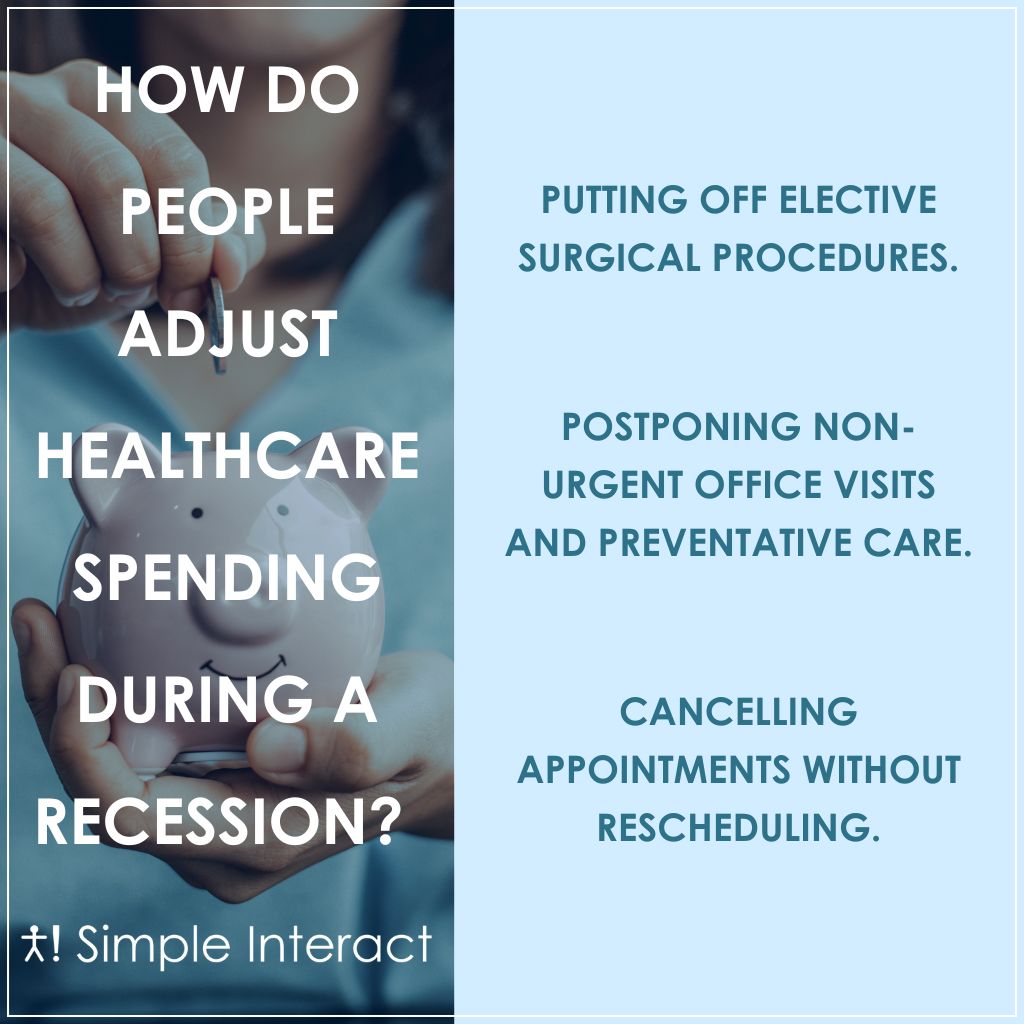The Importance of Automation and Productivity Tools in Periods of Recession

We’ve all heard people say healthcare is a recession-proof business. But this isn’t quite true, and it can lull hospitals, medical practices, FQHCs, and other healthcare facilities into a false sense of security.
The truth is, while the healthcare industry might be recession-resistant, it isn’t immune to the effects of significant economic downturn. For example, recessions affect consumer (including patient) spending habits. People change how they spend money during a recession — even on healthcare.
A prediction from McKinsey & Company forecasts a possible 30% reduction in earnings before interest, taxes, depreciation, and amortization (EBITDA) for medical providers.
Patients typically adjust healthcare spending behaviors during a recession by:
- Putting off elective surgical procedures. This can significantly impact the bottom line of fee-for-service providers.
- Postponing non-urgent office visits and preventative care. When Medicare or insurance company reimbursements are tied to patient outcomes, you can take a financial hit when patients don’t maintain their health.
- Canceling appointments without rescheduling. If patients are strapped for cash, they may simply cancel their upcoming appointments with a vague plan to reschedule when the economy improves. This impacts your bottom line and can leave open appointment slots that go to waste.
Healthcare delivery organizations also contend with the ongoing challenge of wage inflation. Unfortunately, a host of issues such as employee burnout, labor shortage, and lower immigration rates indicate inflated wages won’t abate any time soon.
For any business to survive in a recession combined with inflationary pressures, it must be operationally efficient. It also needs to maintain patient acquisition so that when patients do choose to have an elective procedure or non-urgent appointment, they choose you. Implementing stellar reputation management, making appointment booking as easy as possible, and fostering excellent patient engagement will help.

Improve Operational Efficiency With Front Office Automation
If you want your medical practice to survive a recession, a first important step is to recognize that you can’t change people’s behavior. As much as we might wish they would, people won’t always prioritize their health when the economy falters.
Thankfully, you can take certain actions to ensure you survive a recession, even with the inevitable patient drop-off.
One of the most effective solutions is using front office automation to make your facility more operationally efficient. Here’s how.
Reduce Operational Costs
Reducing operational costs is an important strategy in surviving a recession, but you might not realize how much automation can help.
Optimize Employee Hours
Front office automation takes care of the repetitive, manual tasks that normally inflate staff hours. By automating, you significantly reduce the labor hours needed to run your facility and allow employees to focus on higher-value tasks.
This streamlining also automatically means a lower cost of training new employees and a need for fewer overall staff members to complete the same tasks.
Reduce Unnecessary Supplies
Automation also helps to eliminate unnecessary physical office supplies, such as paper, toner, printers, and scanners. With the right software, you can run a leaner, paper-free operation — better for the environment, of course, and also better for your bottom line during a recession.
Avoid MIPS Penalties
The Medicare population isn’t going to lose coverage during a recession, so that part of your business will remain resilient. As such, it’s critical to optimize the necessary data collection and reporting to achieve your MIPS score and avoid frustrating penalties.
Front office automation streamlines and standardizes your process to help you avoid costly MIPS penalties. Why spend $8 to make $10 when you can get the same outcome spending just $2?
Improve Employee Retention
By reducing the number of repetitive, menial tasks, front office automation allows your team to focus on higher-value items like patient care, and they won’t need to play catch-up or use overtime hours to complete these tasks. Not only will your staff members be more productive, they’ll also know you care about making their jobs easier and more enjoyable.
Happier employees lead to lower staff turnover, which leads to reduced training costs and improved profits.
Be 1% Better Than the Competition
During a period of recession, the 1% Rule is more relevant than ever. If you’ve never heard of this rule, it simply states that you only need to be 1% better than your competition to win.
Improving operational efficiency, ease of access, and online reputation by simply implementing front office automation software and productivity tools could easily be the 1% that puts you ahead of your immediate competitors. And this can be the difference between suffering or thriving during a recession.

Ravi Kalidindi is the Founder and CEO of Simple Interact, a leading Front Office Automation company that helps healthcare facilities across the United States run more efficiently and profitably by boosting staff productivity, reducing provider burnout, and elevating the patient experience. Customers view Ravi as a trusted partner who can quickly comprehend business problems and suggest “keep it simple” solutions that are effective and easier to maintain over time.
Recent Posts
- The Benefits of Using 2-Way SMS Chat for Healthcare Communication
- 2-Way SMS vs. Live Chat: Which Is Best for Bi-Directional Patient Communication?
- Simple Interact Earns A+ Satisfaction Ratings in KLAS Report
- Boosting Healthcare Staff Productivity With a Shared Inbox Dashboard
- Healthcare SMS: What Metrics to Track in Your 2-Way SMS
Categories
Archives
- February 2025
- June 2024
- May 2024
- April 2024
- March 2024
- February 2024
- January 2024
- December 2023
- November 2023
- October 2023
- September 2023
- August 2023
- July 2023
- June 2023
- May 2023
- April 2023
- March 2023
- February 2023
- January 2023
- December 2022
- November 2022
- October 2022
- September 2022
- August 2022
- July 2021
- December 2020
- May 2020
- March 2020
- June 2016